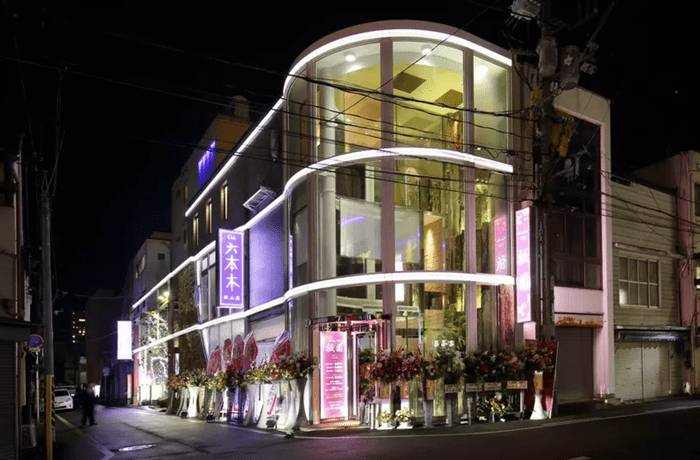
In the 여성알바 context of Japan, a persistent issue pertains to the existence of wage discrepancies between genders. The impact of the salary disparity between day and night shifts is a determining factor in the prevalence of this problem. Night laborers were compensated at an hourly rate of $9, although their daily compensation amounted to $12.
This observation highlights a significant discrepancy in salaries across different professions. The disparity seen might perhaps be attributed to the influence of work, hours, or the shame associated with night shift employment. This article is on the issue of gender pay gap in Japan. In this study, we will analyze the existing disparity in remuneration between males and females.
The peak hours in Japan typically span from 9 a.m. to 5 p.m. Due to the majority of Americans engaging in work. The acquisition of professional experience enhances one’s potential for securing career opportunities. Instances of administration and management. The festivities start at 6:00 PM and continue till daybreak. Customers’ attitudes are not influenced by their experiences with retail and food service staff. A wide range of industries depend on the labor of blue-collar workers.
Some examples of after-hours employment include transportation driving and security guarding. Both organizations need the availability of staff at both early and late hours. In Japan, individuals engaged in nighttime labor experience a notable disparity in their earnings, with a lower remuneration compared to their counterparts engaged in diurnal job. The benchmark is a standard or reference point used for comparison or evaluation. These spheres have a higher level of quality compared to the bulk. There is a decrease in the number of those actively pursuing them. Policymakers endeavor to eliminate gender pay discrepancies as a means to mitigate economic inequality.
Since the year 1980, there has been an unwarranted disparity in wages between day and night shifts in Japan. A discrepancy exists between the public and private sectors. In the context of Japan, this issue had not shown itself as a concern until the 1980s. The study of history has great importance. There is a widespread belief among individuals that the origins of this phenomenon may be traced back to Japan’s economic expansion after the conclusion of World War II. The first public appearance. In many corporate settings, there was parity in remuneration between day workers and night employees, representing a noteworthy enhancement. The remuneration of workers working in different shifts exhibits variability.
The success of the concept was heavily contingent upon regular and consistent attendance. The implementation of this measure was deemed essential in order to enhance productivity. Regrettably, the wage discrepancy between day and night employees has been exacerbated, resulting in a notable differential in earnings for some night workers. Despite the concerted efforts of both labor unions and the government, the issue of pay disparity continues to remain within the context of Japan.
In the context of Japan, it is observed that those employed during daylight hours tend to get higher remuneration and have more prospects for career advancement. There exists a range of employment opportunities, including both full-time and part-time shift positions. Daytime occupations tend to provide the highest financial returns. A greater number of individuals engage in nocturnal work compared to day labor. Approximately 60 percent. Night shift workers work additional hours to address a staffing shortage. Due to this discrepancy, hospitals and hotels need a substantial quantity of people who work during late shifts. This disparity has an impact on each of these sectors. The presence of staff is essential in both areas. Night shift personnel in these sectors get a higher hourly compensation.
There exists a gender-based wage disparity, with males generally earning more incomes than women. Night shift workers get a compensation that is 55% lower compared to their counterparts on the day shift. There is a prevailing discontent among employees in Japan over the laws and collective bargaining efforts that have been implemented to address the salary disparity between daytime and nighttime occupations. The implementation of regulations and measures resulted in a decrease in the salary gap between daytime and nighttime hours. The origin of unhappiness may be attributed to the policies and activities implemented in Japan with the aim of improving working conditions. The expression of anger seen might perhaps stem from legislative measures and governmental strategies aimed at reducing the disparity in earnings between those working during the day and those working during the night. Individuals who engage in work activities for extended periods of time tend to generate more income.

The day-to-night pay difference in Japan is influenced by several variables. The prolonged duration of employment induces feelings of anxiety inside me. The use of rotating schedules has been shown to have several advantages. Night shift professions often provide higher compensation due to their increased level of danger and difficulty. As a result, workers who work the night shift get a higher salary. The engagement in labor is an essential need. Furthermore, workers working the night shift often place a higher priority on their home commitments rather than their job responsibilities. The significance of this matter cannot be overstated. The potential outcome may result in negative consequences for the firm. The average number of workers working on the night shift at a national level is much smaller. The nighttime shift is now experiencing a significant deficit of employees.
As a consequence of the scarcity of available labor, there has been an upward trend in wage rates. Unemployment is unparalleled. Medical and transportation occupations that operate during nighttime hours need a reduced level of training. The typical workplace. This discourse establishes a connection between transportation and healthcare, as well as other related subjects. Employers that engage in discriminatory practices against workers working during the night shift may exhibit differential compensation strategies. There are further concerns to consider. There are other alternatives available to you. In this context, individuals are encouraged to express their own viewpoints.
In the context of Japan, employment opportunities during daylight hours tend to provide higher financial returns. The disparity between supply and demand in Japan has a significant impact on all individuals. Employees who work during nighttime shifts in convenience shops and security positions tend to get lower wages. Their inability to get health insurance is a result of their absence of full-time job. The individuals in question are currently without employment.
Gender-based wage disparities contribute to the exacerbation of inequitable conditions. This diversity arises as a result of incentivizing different actions at various points in time. This method serves to legitimize economic inequalities. The presence of economic inequality results in a significant portion of persons being unable or disinclined to engage in overnight work shifts, thereby restricting the range of available job prospects. The presence of economic disparity is the underlying explanation behind this phenomenon. This phenomenon has the potential to result in a reduction in job opportunities. The existence of a salary disparity has the potential to diminish the pool of employment candidates. The news is positive. The potential outcome would be rather unfavorable. The organization had a lower representation of minority individuals in its workforce.
Japan aims to mitigate the economic disparity between daytime and nighttime periods. Advocate for the principle of “pay equity,” which asserts that individuals of varying genders and degrees of expertise should be remunerated equally for indistinguishable tasks requiring equivalent exertion, irrespective of their respective work ethic. There are several alternatives. An extra challenge arises. The implementation of Equal Employment Opportunity (EEO) policies and practices provides advantages to current workers.
Individuals who are assigned to work on the night shift are entitled to obtain supplementary advantages. Two examples are complimentary meals and vouchers for gasoline. The provision of paid holidays is a compulsory requirement. Non-traditional personnel are required to consistently carry them. The operational hours of professionals in this sector are mostly limited to regular office hours due to personal and family obligations. The feasibility of the matter is evident. These endeavors aim to mitigate economic inequality in Japan through improving the fairness of the labor market.
It is imperative for the Japanese government to promptly address the existing wage discrepancy between daytime and evening work hours. The government and other stakeholders have made some advancements, while insufficient, in addressing the issue at hand. It is imperative to eradicate gender-based workplace discrimination and provide equitable remuneration for equivalent work performed by women. It is recommended to do both tasks promptly. Please do both assignments as efficiently as possible. It is universally recognized that all individuals deserve equitable remuneration and prospects for professional growth. The number of hours worked should not be a determining factor in the allocation of this benefit. Persistent enterprises are often successful.
The increasing awareness among Japanese residents about the pay gap, along with their calls for government and corporate action, contributes to the growing feasibility of its elimination. There is an increasing level of awareness among Japanese individuals about the existence of a pay gap, leading to a growing desire for the government and corporations to take necessary measures to address this issue. Collaborative efforts have the potential to mitigate the economic difference between daytime and nighttime in Japan.
